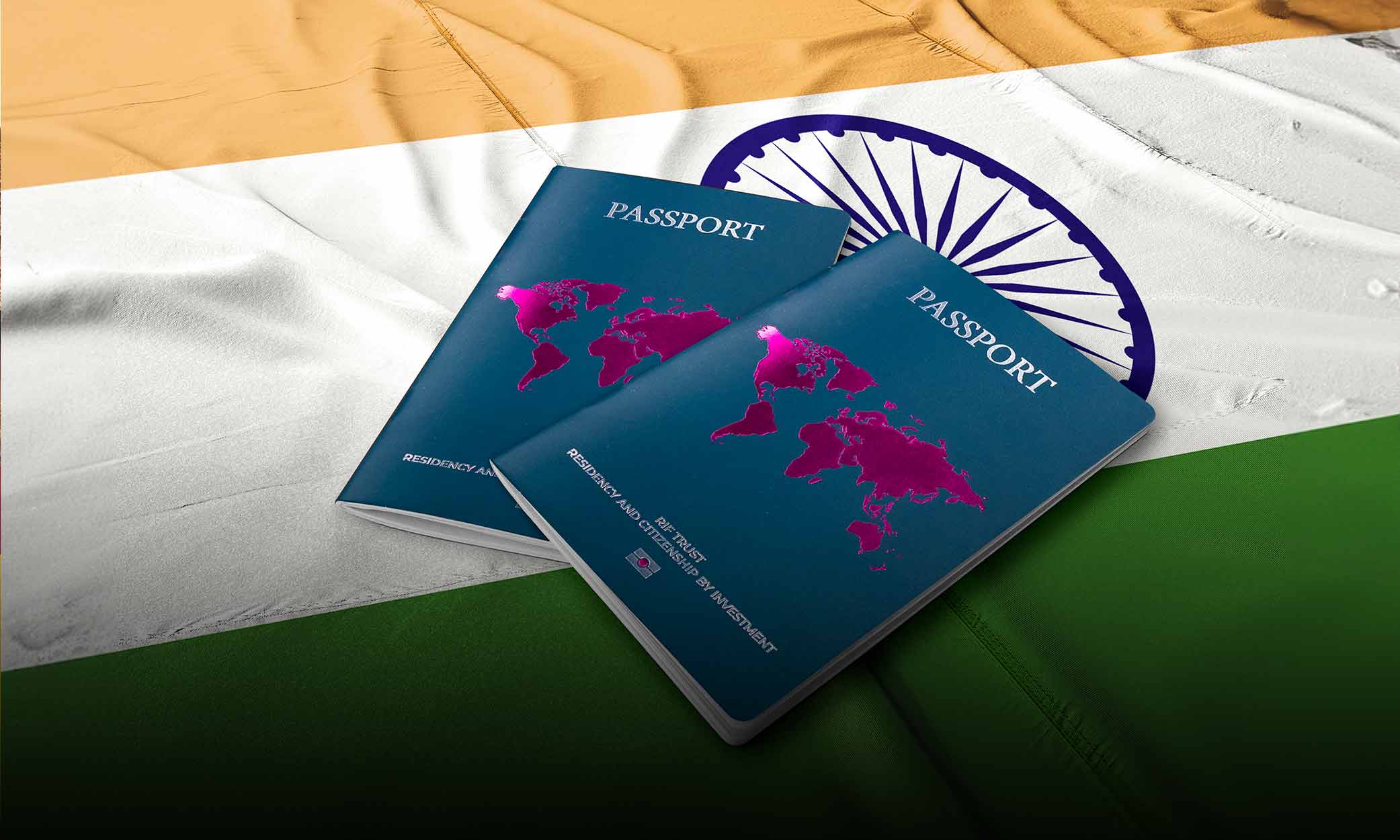Jump to other articles:
Surrender Indian Passport Trend Continues to Grow in 2024

The RIF Trust Verdict on the Surrender Indian Passport Trend
Binu Varghese is our Regional Director – India. Through her heritage, she’s perfectly placed to comment on the surrender Indian passport movement.
Varghese asserts that “when the illustrious Times of India, the daily that sells more copies than any other English-language rival, picks up on something; you know it’s newsworthy.”
“The article in question is about Gujarat. But the surrender Indian passport tendency is not confined to this western state. It’s happening everywhere in India.”
“Passport surrenders in Gujarat doubles in a year; understanding the new trend”
The Times of India piece reveals that the number of passports surrendered in Gujarat grew from 241 in 2022 to 485 in 2023. By the start of May 2024, 244 Gujiratis had relinquished this travel document. The majority of people doing the handing in of Indian passports are aged 30-45.
As our Regional Director – India points out, this is a national rather than state-specific thing. The Times of India cites government statistics that have “Gujarat third in India for citizenship renunciations from 2014 to 2022, with 22,300 individuals surrendering their citizenship.”
“Delhi and Punjab lead the tally with 60,414 and 28,117 renunciations, respectively.”
The reason for the growing popularity of a surrender Indian passport surge is that India does not allow dual citizenship, in common with neighbours Afghanistan and China, outlines The Times of India.
The Passports Act 1967 binds Indian nationals to hand in their passport once they become a national of a foreign country. Do so quickly enough and they incur no fine, although penalties rise steeply if they leave it beyond 3 years.
Where Indian Nationals Are Heading and Why
In The Times of India piece, they mention that Indian citizens are renouncing after settling in the likes of Canada and the US.
Both have Residency by Investment Programmes that lead to citizenship following a period of naturalization and the Portuguese Golden Visa, in particular, in particular, has been garnering an enthusiastic following.
There’s also been interest in Citizenship by Investment Programmes from the Indian market, with the Caribbean a popular investment destination.
One of the countries increasingly attracting Indian investors is Malta. Malta Permanent Residence for Indian Citizens is gathering momentum, although Maltese Exceptional Investor Naturalization (MEIN) takes 16-18 months to become eligible for a Maltese passport as opposed to 15 years.
The common consensus behind the surrender Indian passport trend is to swap a weak travel document for a stronger one. Investors want to enhance their global mobility with a new passport.
You only have to consult our Passport Index to compare the Indian passport to that offered by other countries.
We rank the Indian passport in a low 57th position. It allows you to enter a mere 100 visa-free destinations. The aforementioned Canada and the US rank in 7th and 8th places respectively, with visa-free travel available to 175 and 174 countries.
![]()
How to Use Residency and Citizenship by Investment Solutions to Your Advantage
You’re not going to join the surrender Indian passport movement until you have a better passport to trade up to. To make that happen sooner rather than later, we suggest you consult a highly-regarded Residency and Citizenship by Investment firm such as RIF Trust. So, contact us now and we’ll show you how to improve your global mobility.
 Back to News
Back to News